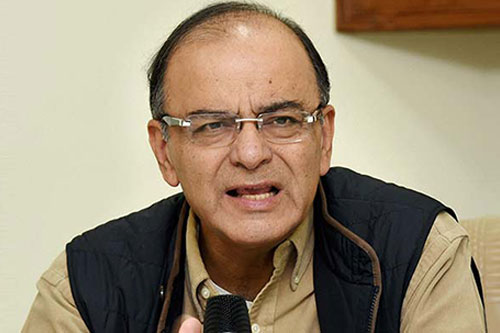Government proposes GST, Opposition disposes
Dated 11th December, 2016
 The Centre and the states were looking to finalise three draft laws - the central Goods and Services Tax (CGST), the integrated GST (IGST) and the compensation for states but the meet remained largely inconclusive.
The Centre and the states were looking to finalise three draft laws - the central Goods and Services Tax (CGST), the integrated GST (IGST) and the compensation for states but the meet remained largely inconclusive.
Finance Minister Arun Jaitley who chaired the meet of state finance ministers while briefing the media said, "Bulk of agreements have been worked upon. 99 sections out of 195 have been agreed upon." But mood of the non-BJP states suggested that "there were miles before the government could even heave a sigh of relief."
DEADLOCK
Former Chief Minister of Punjab, Captain Amrinder Singh was a vocal voice on the GST Bill stating, "Punjab's expenditure was more than the revenue. The deficit being Rs 5000 crore. The GST in that sense is a huge concern." Though Singh later elaborated that Congress had decided to go with the GST but some of the clauses needed to be discussed threadbare. Meanwhile, others who were part of the GST council meet including Chief Minister of Puducherry Narayansami told India Today, "The discussions are on. The bills are being discussed one by one. There will be a meeting later as well."
Finance Minister of Delhi, Manish Sisodia reiterated the same sentiment that "there will a be discussion on the GST which will continue later. No final decision has been taken yet."
CONCERNS OF STATES
Dual control: The bone of contention is how the small taxpayers - who, under the existing regime, are largely with the states - will be administered. The states want exclusive control on businesses with turnover below Rs 1.5 crore (the current threshold for central excise), including the service taxpayers, who are close to 30 lakh in number. The Centre is inclined to give the states exclusive right to assess goods suppliers up to Rs 1.5 crore, but is firm that the service tax assesses should remain under its sole control, at least in the initial years. The states don't have the competence to deal with service tax, which the Centre has acquired.
Compensation bill impacted because of demonetisation: While sources added that compensation which has been agreed upon by the Centre and states, which has been pegged at 14 per cent, has been affected because of demonetisation, with many states claiming that their revenue had been affected by government's surgical strike, leading to further losses.
ROLLING OUT GST
The central government plans to implement the GST from April 1, 2017. The GST has to be rolled out by September 16, 2017, as the existing indirect taxes will come to an end and it would not be possible for either the Centre or states to collect the taxes. But the government has a limited window, with key states still dissenting. With Winter Session of Parliament concluding on Friday, the government has limited window to get everyone on board.
The GST Bill got President Pranab Mukherjee's approval on September 8, after being ratified by 16 states. It was passed by the Rajya Sabha on August 3. It seeks to replace India's complicated tax regime comprising 17 different charges with a single levy.





